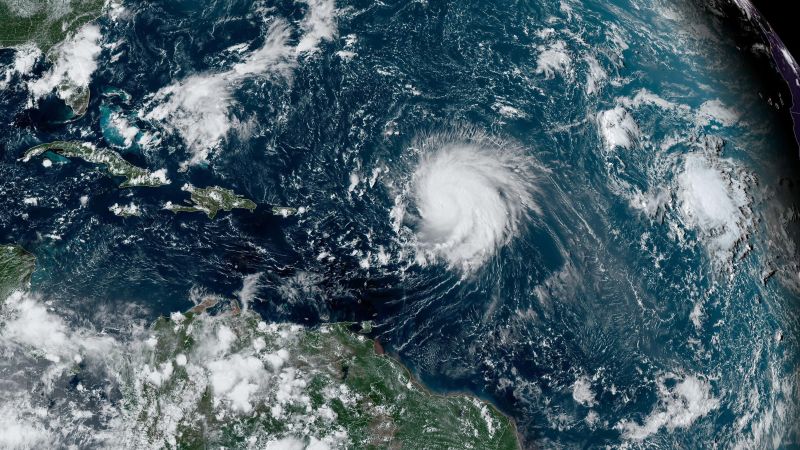The world’s oceans have now experienced an entire year of unprecedented heat, with a new temperature record broken every day, new data shows.
Global ocean surface temperatures started breaking daily records in mid-March last year, according to data from the National Oceanic and Atmospheric Administration (NOAA) and the University of Maine’s Climate Reanalyzer, fueling concerns for marine life and extreme weather across the planet.
“The amplitude by which previous sea surface temperature records were beaten in 2023, and now again in 2024, is remarkable,” said Joel Hirschi, associate head of marine systems modeling at the National Oceanography Centre in the UK.
Global average ocean temperatures in 2023 were 0.25 degrees Celsius warmer than the previous year, said Gregory C. Johnson, a NOAA oceanographer. That rise is “is equivalent to about two decades’ worth of warming in a single year,” he told CNN. “So it is quite large, quite significant, and a bit surprising.”
Scientists have said ocean heat is being supercharged by human-caused global warming, boosted by El Niño, a natural climate pattern marked by higher-than-average ocean temperatures.
I saw a United States congressperson take a snowball from a cooler though. Checkmate, libs.
/s
“I saw a
United States congresspersonsnowflake take a snowball from a cooler though.”FTFY
Removed by mod
This is our natural AC overheating slowly…
I saw a video where you can build an AC with a styrofoam cooler, ice, water, a fish tank pump, copper tubing, and a fan. I think we could fix the ocean if we just throw all our ice, styrofoam, drinking water, motors, copper tubes, and fans into it.
I thought we already did that
Try harder! More stuff in the oceans! Do your part!
Yaay. Even the number of records is a record!
Removed by mod
No, we’re not fine with being unbelievably screwed, but the ruling class has decided that this will be normal, so we might as well make dark jokes about it while we scream into the void.
Removed by mod
Do it then. I am waiting for the news.
This is why you are going to want to start microdosing on warm fluids starting now.
I spent the last few years building up an immunity to
iocane powderocean water.
If you’re still going to have kids after reading news like this, they’ll grow up hating you for bringing them in this hellhole.
Removed by mod
Let them bring their children on this planet where farming might be unsustainable in near future. Fuck em
This is the best summary I could come up with:
“The amplitude by which previous sea surface temperature records were beaten in 2023, and now again in 2024, is remarkable,” said Joel Hirschi, associate head of marine systems modeling at the National Oceanography Centre in the UK.
Global average ocean temperatures in 2023 were 0.25 degrees Celsius warmer than the previous year, said Gregory C. Johnson, a NOAA oceanographer.
Global ocean warmth can add more power to hurricanes and other extreme weather events, including scorching heat waves and intense rainfall.
Australia’s Great Barrier Reef is experiencing its seventh mass bleaching event, authorities announced in March following aerial surveys.
“At times, the records (in the North Atlantic) have been broken by margins that are virtually statistically impossible,” Brian McNoldy, a senior research associate at the University of Miami Rosenstiel School told CNN.
El Niño is weakening and predicted to dissipate over the next few months, which could level off the record ocean temperatures, especially if the cooling effects of La Niña replace it.
The original article contains 585 words, the summary contains 162 words. Saved 72%. I’m a bot and I’m open source!







